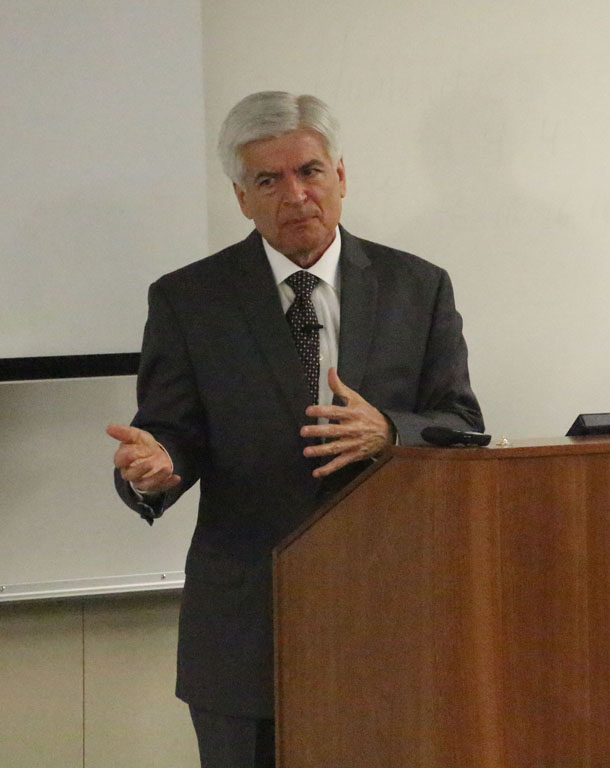Bakersfield College held a conference on equity so that educators could better serve students in Kern County. The conference was held in the Levan Center and topics discussed included equity in Science, Technology, Engineering and Mathematics knowledge, the classroom and the equity gap experienced by students at BC.
Dan Arvizu, who works for the National Renewable Energy Laboratory in Colorado, was a keynote speaker at the conference and discussed certain populations that are typically underrepresented in the STEM workforce. He briefly discussed his own experiences as a minority working in the STEM field. A concern Arvizu discussed was the growing gap in STEM-related knowledge in the United States.
“We’ve got a large fraction of our population that is getting left behind,” he said.
Arvizu addressed the importance of STEM knowledge even in fields not typically associated with STEM. He discussed the importance of community colleges leading students toward STEM, especially students that are underrepresented in those majors.
After his speech, Arvizu led a question-and-answer session and some educators questioned how to entice students into STEM majors when there are a large number of general education courses that must be completed.
Janet Fulks, a professor at BC, discussed how many levels of math she had to complete as a microbiology major and wondered if students may be disheartened to major in the sciences when there are so many general-education classes that must be taken first. Although Arvizu didn’t have solutions, he felt that it was important to discuss these issues to solve them.
There were several different speakers and breakout sessions at the conference, and it ended with a discussion led by several BC students on how to make the BC campus more equitable to all students. Wesley Lyons, an army veteran, presented his experiences serving the U.S. and how BC should provide more services to veterans and others who may suffer from panic attacks and other mental health issues that could affect a student’s education.
“[I have] no mental health or physical ailments that plague my profession,” he said. “But there should be a dedicated mental health professional for those with Post Traumatic Stress Disorder. The veteran’s lounge does wonders for students who have it the worst.”
Tania Bernal, another student at BC, discussed her experiences as an undocumented student struggling to pay for school independently while trying to understand the benefits she has an AB 540 student. She said that enrolling at BC was difficult and there were several political obstacles prohibiting her education.
“I had to work three jobs just to pay for my books and tuition,” she said. “I come from a low-income family and do not qualify for financial aid because of my immigration status.”
Bernal said that she hopes BC will offer more cultural awareness programs in the future to promote diversity on campus. She also said that she wishes there were more resources to help AB 540 students understand the process of attending BC with their status and to help students that have a deferred action status.
Catrina Agular presented on her difficulties finding a scribe on campus and Sarah Alame discussed the acceptance she received from the BC community as a practicing Muslim.
“BC does provide a safe environment for those who practice their faith,” she said.
A planning committee headed by Odella Johnson, the Interim Director of Equity and Inclusion at BC, organized the conference. She said that it’s part of her mission to support student success at BC and to decrease equity barriers for students.


